2023 Fiat 500e First Drive Review: A European preview

TURIN, Italy – America’s relationship with the Fiat 500 has been rocky at best.
Skimming over the original, pre-war model, the second-generation 500 (the one with a rear-mounted engine) was briefly sold here with funky headlights that stuck out from the front end like a bug’s eyes. Small and underpowered, though a tremendous amount of fun to drive in its own way, it didn’t catch on and moseyed out of our market after a few short years.
The third-generation 500 spearheaded Fiat’s return to the United States when it disembarked here in 2012. It sold as well as you can expect a European-flavored subcompact hatchback to sell in the Ford F-150’s bastion and bowed out in 2019, though it’s still sold across the pond alongside its intended successor. That would be the fourth-generation 500, unveiled in 2020, which kept the retro design but went electric-only.
Sales in the United States are scheduled to start in early 2024, meaning the cheeky hatchback will be about four years old by the time it turns a wheel on American pavement. Is it worth the wait? I traveled to Fiat’s home town of Turin in northern Italy to get a better idea of what makes this fun-sized EV buzz.
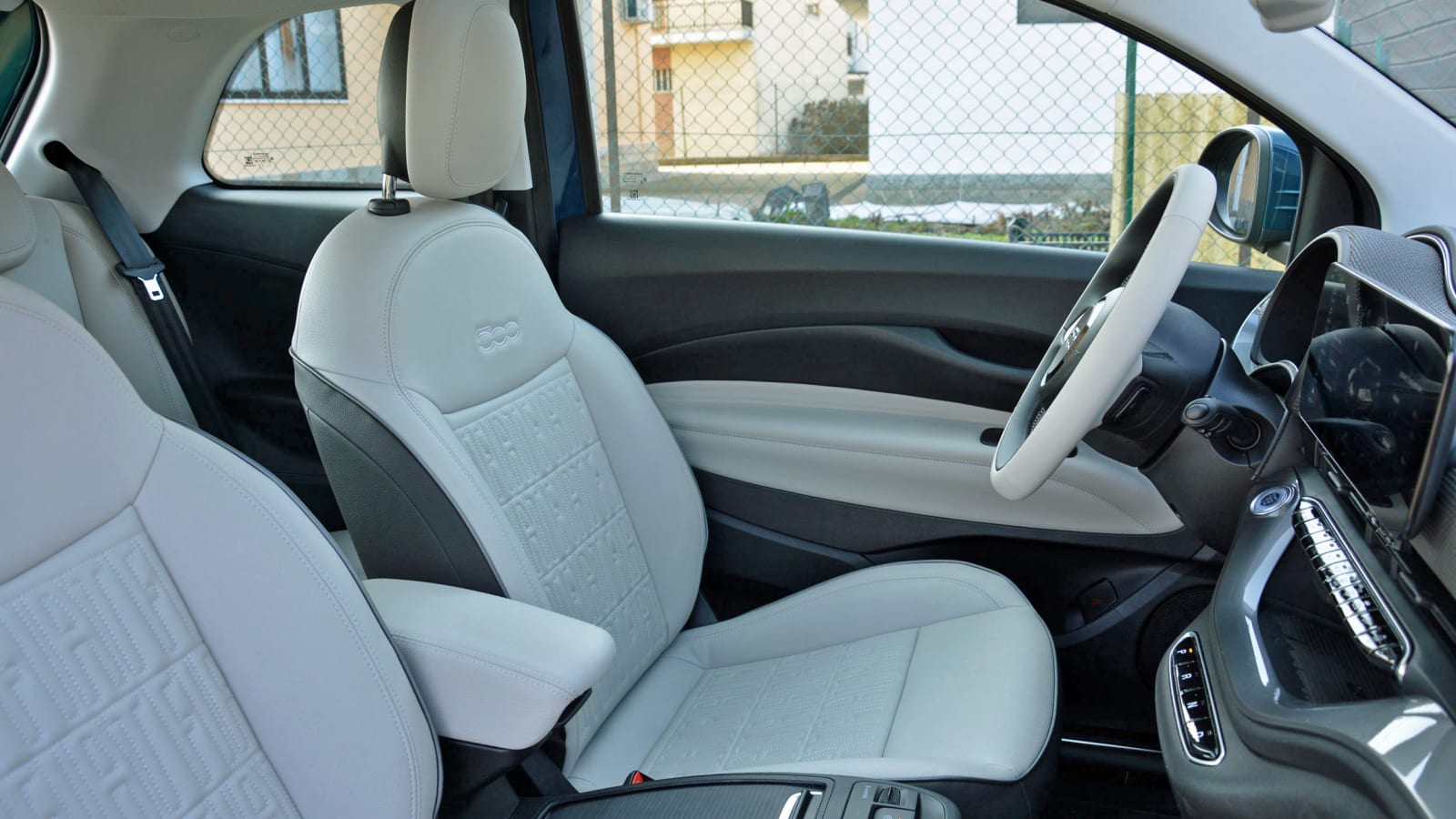
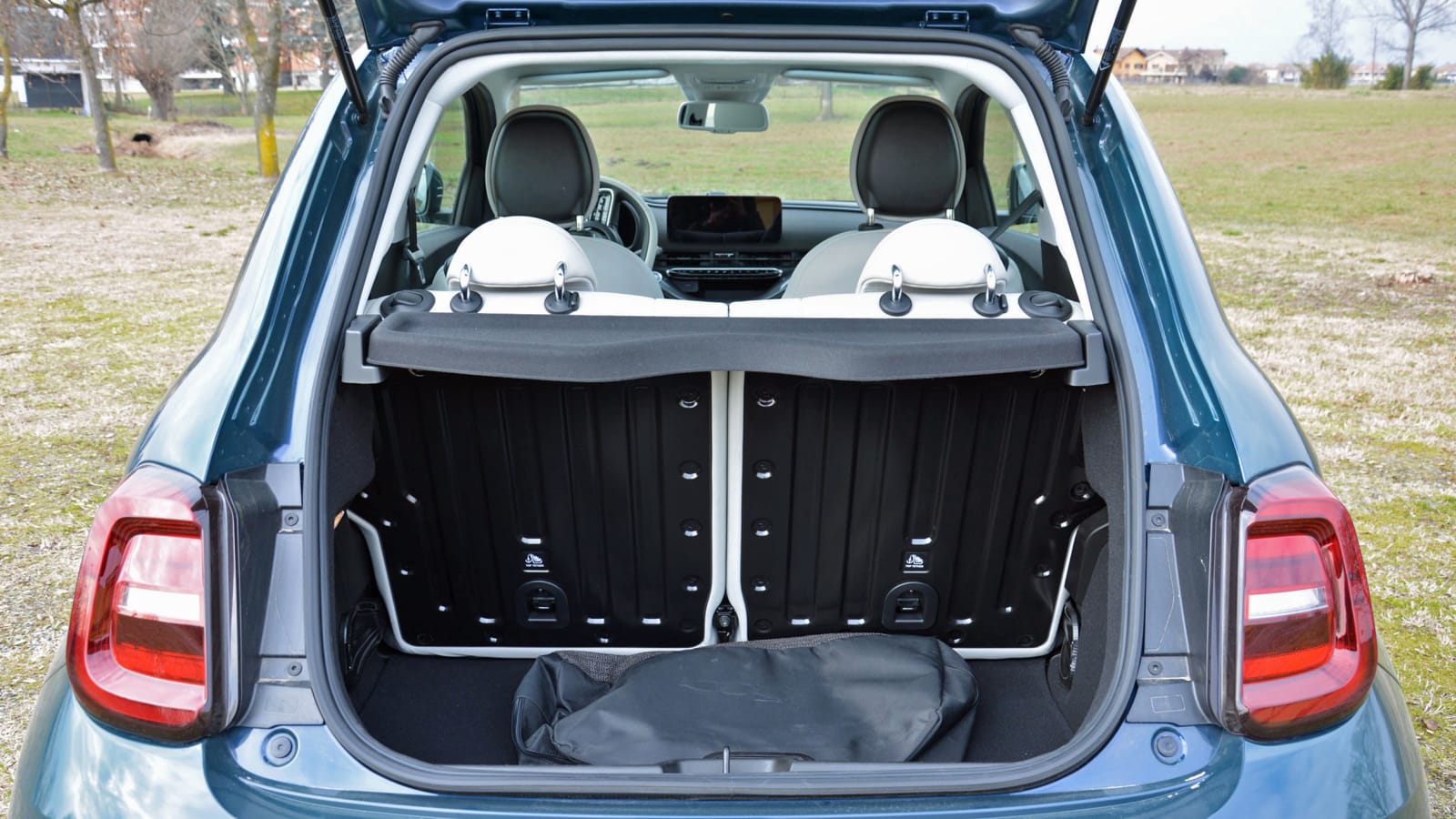
There’s one point I need to address right off the bat: what you see in our gallery isn’t exactly what you’ll get when the new 500 rolls into American showrooms with an “e” attached to the end of its name. Fiat hasn’t detailed the American-market model yet, but it’s reasonable to assume most of the changes will be found on the specifications sheet and on the list of standard and optional equipment. Fiat can’t take a European-market car and ship it here unchanged, but I’m not expecting significant updates to the exterior or interior design — nothing suggests it will morph into an outdoorsy four-door crossover.
Speaking of design, it’s been the 500’s main selling point since the last-generation model made its debut in 2007 so Fiat’s edits were pretty light. I’d guess someone who isn’t up to date with what’s happening on car planet might not realize that they’re looking at a new 500, and that’s intentional. Still unabashedly retro, the model stands out from its predecessor with a new-look front end that features two-piece LED headlights and a big “500” emblem, bright beltline trim and a more chiseled hatch. Its proportions haven’t changed, but it’s slightly bigger than before: it stretches 143 inches long, 66.3 inches wide, and 60.1 inches tall, dimensions that make it about 3 inches longer, 2 inches wider, and 2 inches taller than the last 500 sold here. It’s offered as a hatchback with two or three (!) doors and as a quasi-convertible. I drove the two-door hatchback, and it’s too early to tell which variant(s) will come to the United States.
Bigger changes are scattered throughout the interior: the new 500e feels much nicer than the last-generation model, both in terms of fit and finish, and of equipment (it even has power-operated door handles, Maserati-style). It also benefits from the same fun approach to design that permeates most of the recent additions to the Stellantis portfolio. “FIAT” is stitched into the upholstery, the old 500’s outline appears in the interior door pull next to the phrase “Made in Torino,” and the Turin skyline is etched into the wireless charging pad’s mat. The driver faces a two-spoke steering wheel and a refreshingly simple digital instrument cluster, while a 10.25-inch touchscreen dominates the dashboard.
The similarities between the last-generation 500 and the new model are merely skin-deep; the two cars share nothing under the sheet metal. Built on a new platform, the 500e ships with a single, front-mounted electric motor that draws electricity from a tiny, 28.5-kilowatt-hour lithium-ion battery pack to zap the front wheels with 95 horsepower and 162 pound-feet of torque. This version tips the scale at 2,601 pounds, and my crystal ball tells me we’re unlikely to see it in the United States. What we’ll likely get (though keep in mind that this is pure speculation) is the drivetrain European motorists have to pay extra for. It’s still built around a front-mounted electric motor, but the battery pack’s size increases to 42 kWh and horsepower jumps to 118, though torque stays flat. In this configuration, the 2,843-pound 500e takes 9 seconds to reach 62 mph from a stop versus 9.5 seconds for the base model.
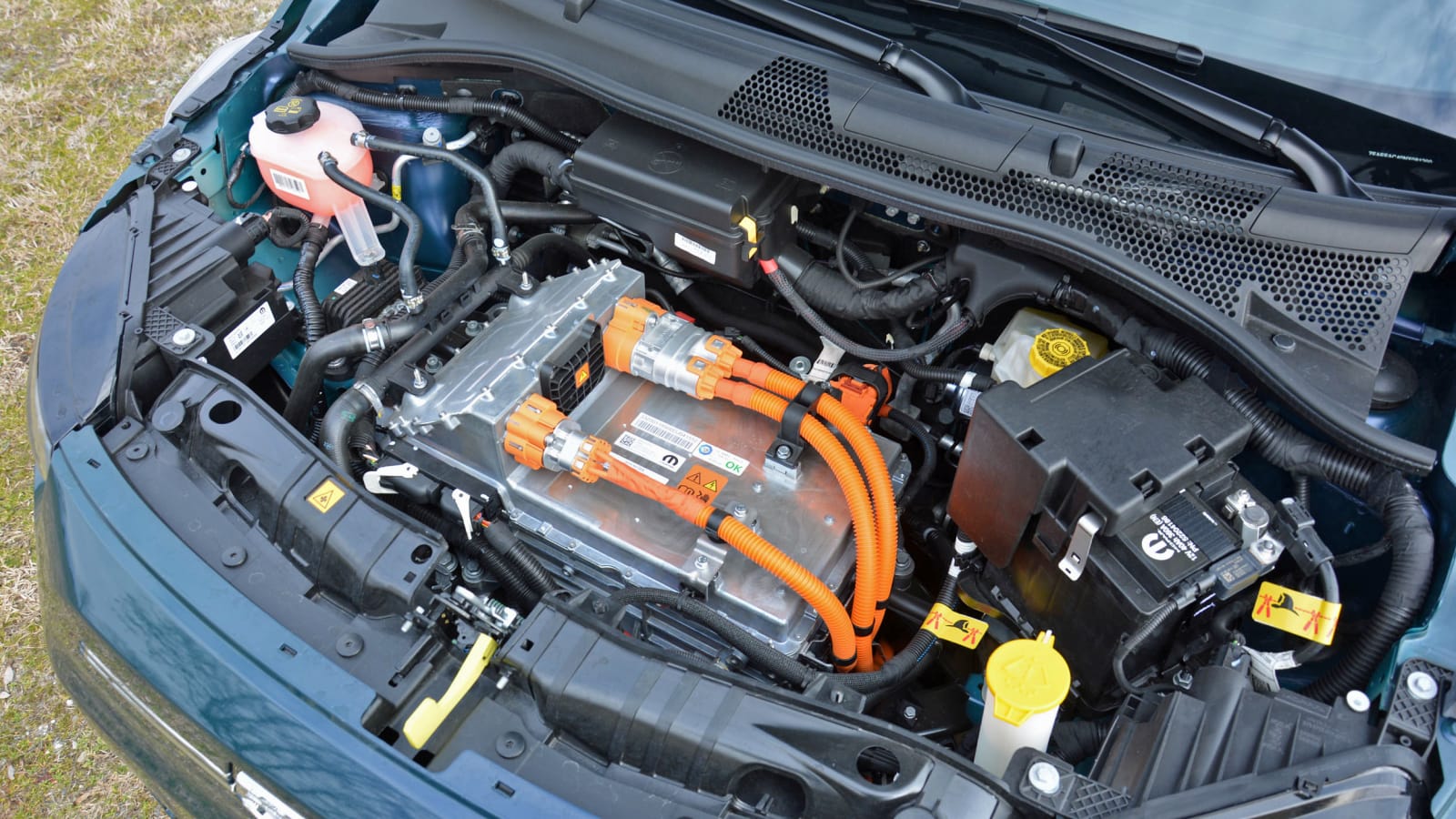
Driving range depends on where you drive and who you ask. Fiat quotes figures of 118 miles and 205 miles for the small and big battery packs, respectively, but it notes that driving exclusively in the city unlocks 257 miles and 291 miles, respectively. These numbers were achieved using Europe’s notoriously optimistic WLTP testing cycle, and the EPA figures will be lower (assuming we get either battery pack).
There’s a lot to like about the 500e from the driver’s seat. It’s more spacious than you might assume given its dimensions, the front seats are reasonably comfortable, and the digital instrument cluster is refreshingly simple. It’s basic, which is a nice change from some of the IMAX-like displays companies are increasingly stuffing into their cars. And, in a way, it’s also retro: the old 500 came with a very simple instrument cluster as well. The materials on the dashboard feel nice considering the segment this car competes in, though you don’t need to poke around for very long to find rock-hard plastics, and the gear selector buttons save space but are clunky to use. Out back … well, it’s a 500, a model that has never, ever been admired for roominess. It’s tight, and the trunk is small, but expecting to fit NBA players in the rear seats and a cooler in the trunk is like expecting to zig-zag across central Rome in a Chevrolet Tahoe.
Fiat will make some changes to the 500e before launching it in the United States, as mentioned above, but I’d say the interior is good to go as-is … with one exception. The lone, itsy-bitsy cupholder that flips out from the bottom part of the center console is not going to cut it in the land Big Gulpuccinos.
One of the more interesting and unexpected takeaways from my time behind the wheel is that the 500e drives a lot like its gasoline-burning predecessor. It’s quicker thanks to the electric motor’s instant torque, and it’s obviously quieter, but it doesn’t like to be hustled (that’s what the Abarth-branded model is ostensibly for). While the battery pack is integrated into the chassis and directly under the seats, its relatively small size prevents the 500e from feeling as planted and bottom-heavy as other EVs.
Where this car really shines is in the city. It effortlessly and silently glides from light to light and darts into gaps in traffic. It’s easy to park, too, thanks to a relatively tight turning radius and a light steering system. It’s also at home on country roads and even on the highway, though the steering is equal parts quick and vague and the suspension is surprisingly harsh. I imagine that’s one of the changes that Fiat will make before giving the 500e permission to travel to the United States; global-market cars often come with a firmer suspension in Europe than in the United States due to different buyer preferences.
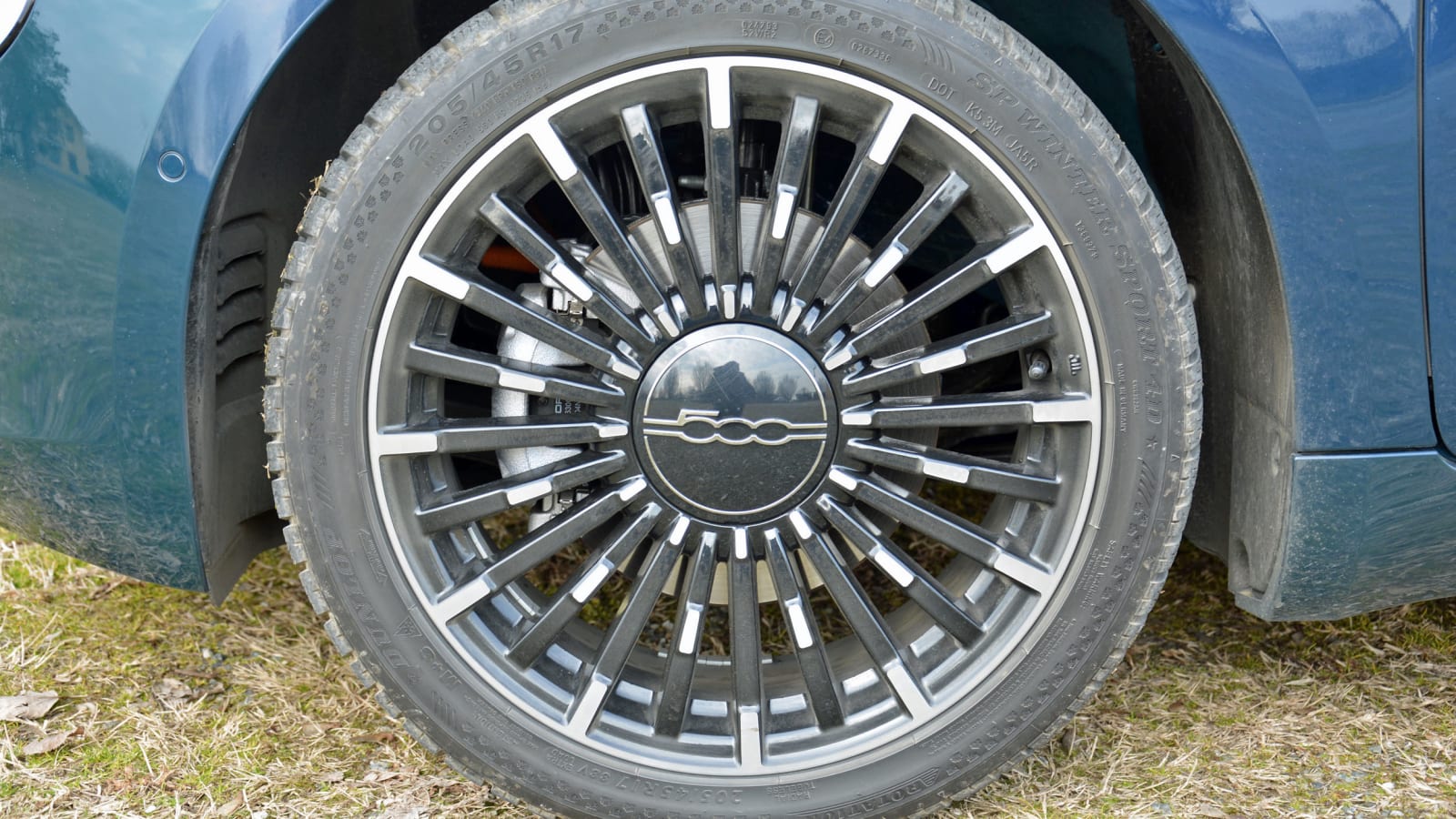
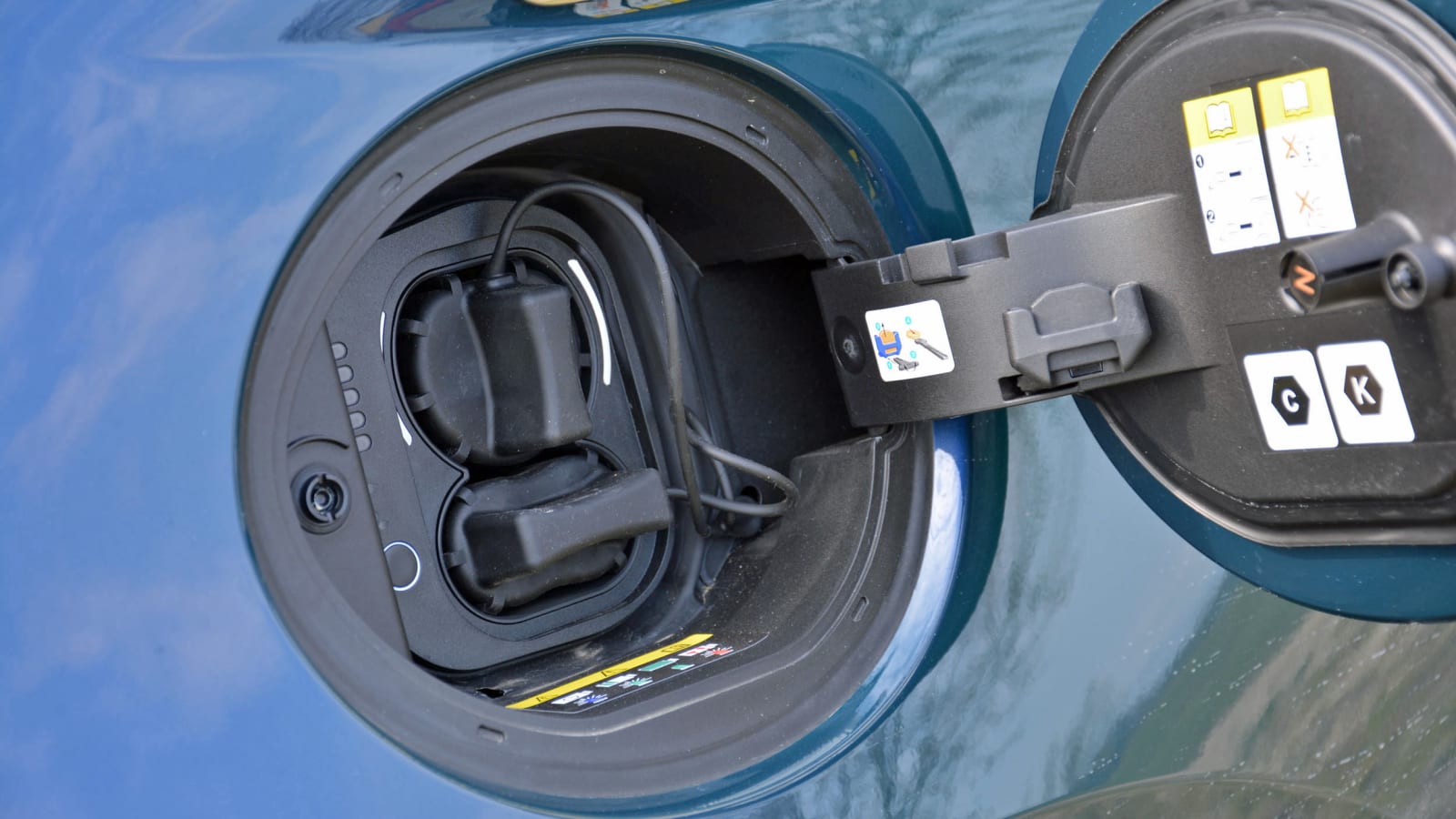

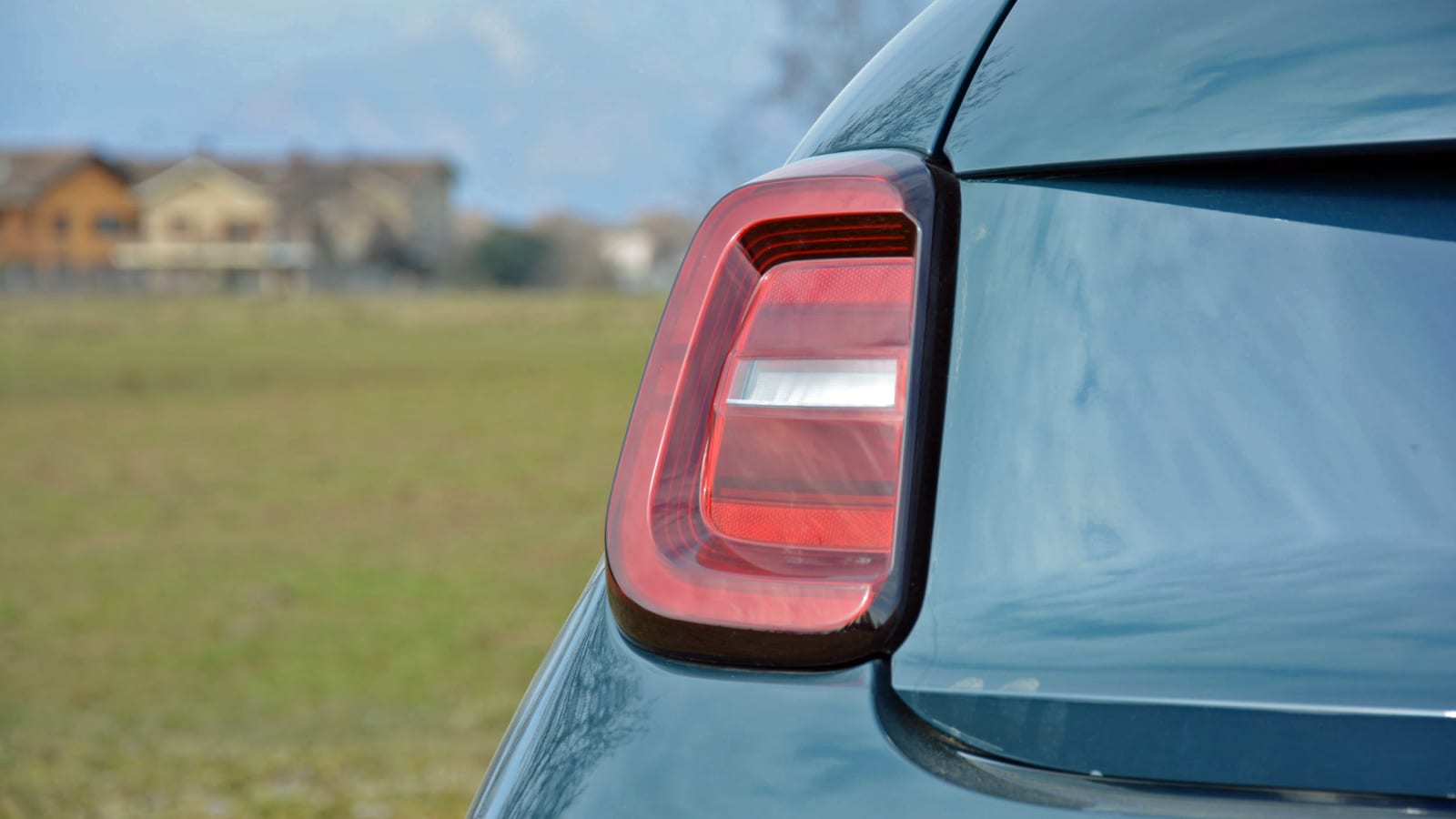
One of the infotainment system’s menus shows the power flow, which isn’t unusual in a modern car regardless of powertrain type. What’s cool here is that, in addition to the motor’s real-time power consumption, it displays how much juice the climate control system is drawing. This takes a great deal of the guesswork out of driving an EV — if your range is free-falling, it can help you figure out why. In my case, I lost more range than I covered distance. It was fairly cold at the foot of the Italian Alps, so I had the heater on for most of the drive (my tester didn’t have heated seats). Your mileage may literally vary.
Fiat programmed three driving modes called Normal, Range and Sherpa, respectively. The first mode is self-explanatory, but an important detail is that there’s no perceptible brake-energy regeneration. Lift off the accelerator pedal and the 500e coasts without any resistance. Range feels a lot like Normal but it brings a strong amount of regen; you can come to a full stop by lifting your foot off the accelerator. Last and, in this case, least, Sherpa limits the top speed to about 50 mph and disables the air conditioning system as well as the heated seats (if equipped) to save as much range as possible. In a dubious way, this is another retro touch: with Sherpa mode, you’ll be hot as hell in the summer and never reach freeway speeds, just like in a 1957 500 with an air-cooled, 13-horsepower two-cylinder engine.
The one-pedal driving mode is a real boon in city driving, and it adds a little bit of range to the battery pack every time you take your foot off the accelerator pedal, but if I could go back and intervene in the design process, I’d add an intermediate mode. As it stands, it’s all or nothing, and the regeneration you get in Range mode is relatively aggressive. The 500e would benefit from, say, a Range-Light mode.
There are two ways to look at the 500e. On one hand, it’s a whole lot less useful and a whole lot more expensive than its gasoline-powered predecessor. The limited driving range will relegate it to second-car status for most families and, while pricing for the American market hasn’t been released, it won’t be cheap. Pricing starts at €29,950 for the 95-horsepower model and €33,150 for the 118-horsepower version in Italy, figures that represent approximately $31,800 and $35,200, respectively, though the conversion is never as simple as Google makes it out to be. On the other hand, there’s a subset of the population that will welcome the 500e as the perfect car. It turns heads even in its home country, it has one of the best interiors in Europe’s crowded city-car segment, and it’s tailor-made for big-city life. How that translates back in the United States will be interesting to see.
Related video:



